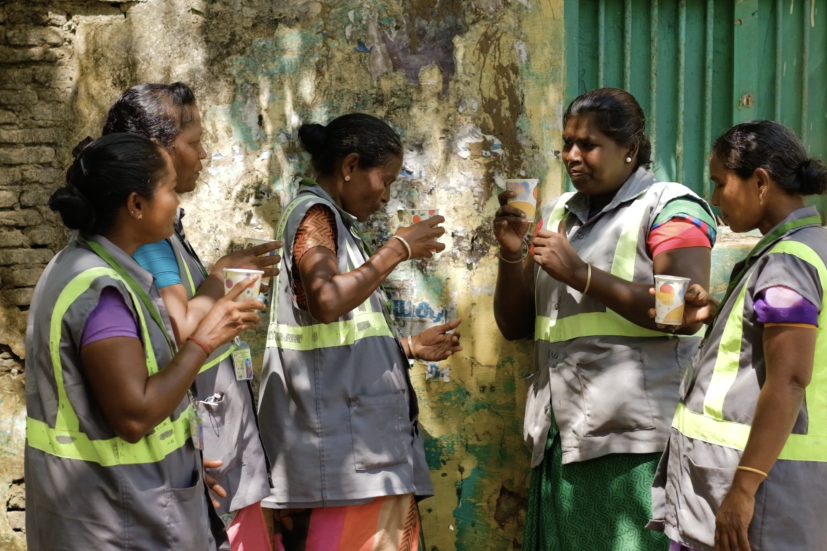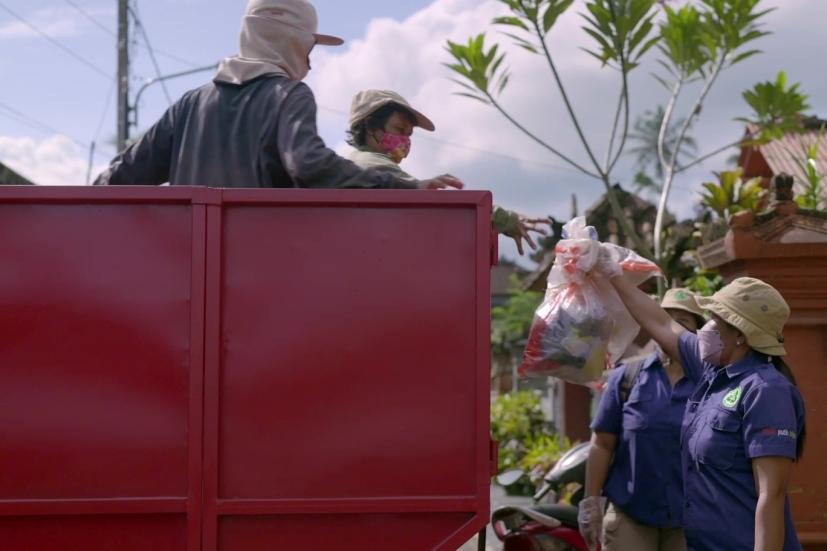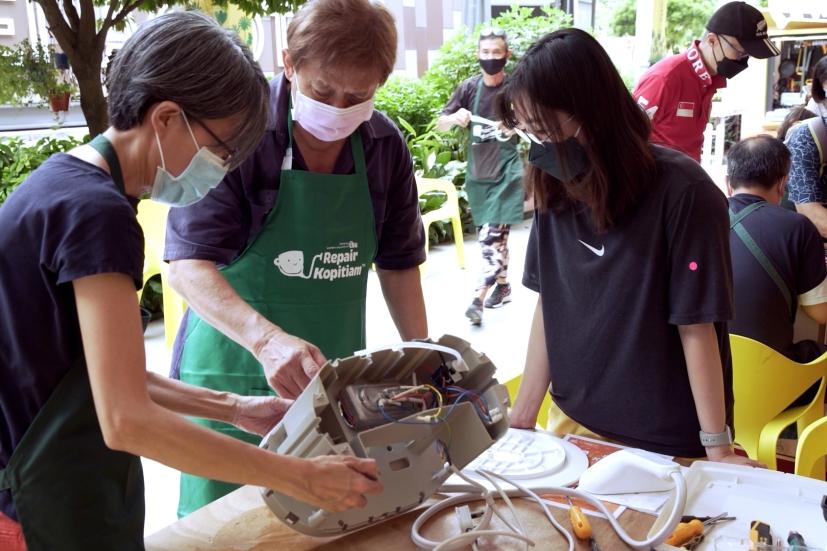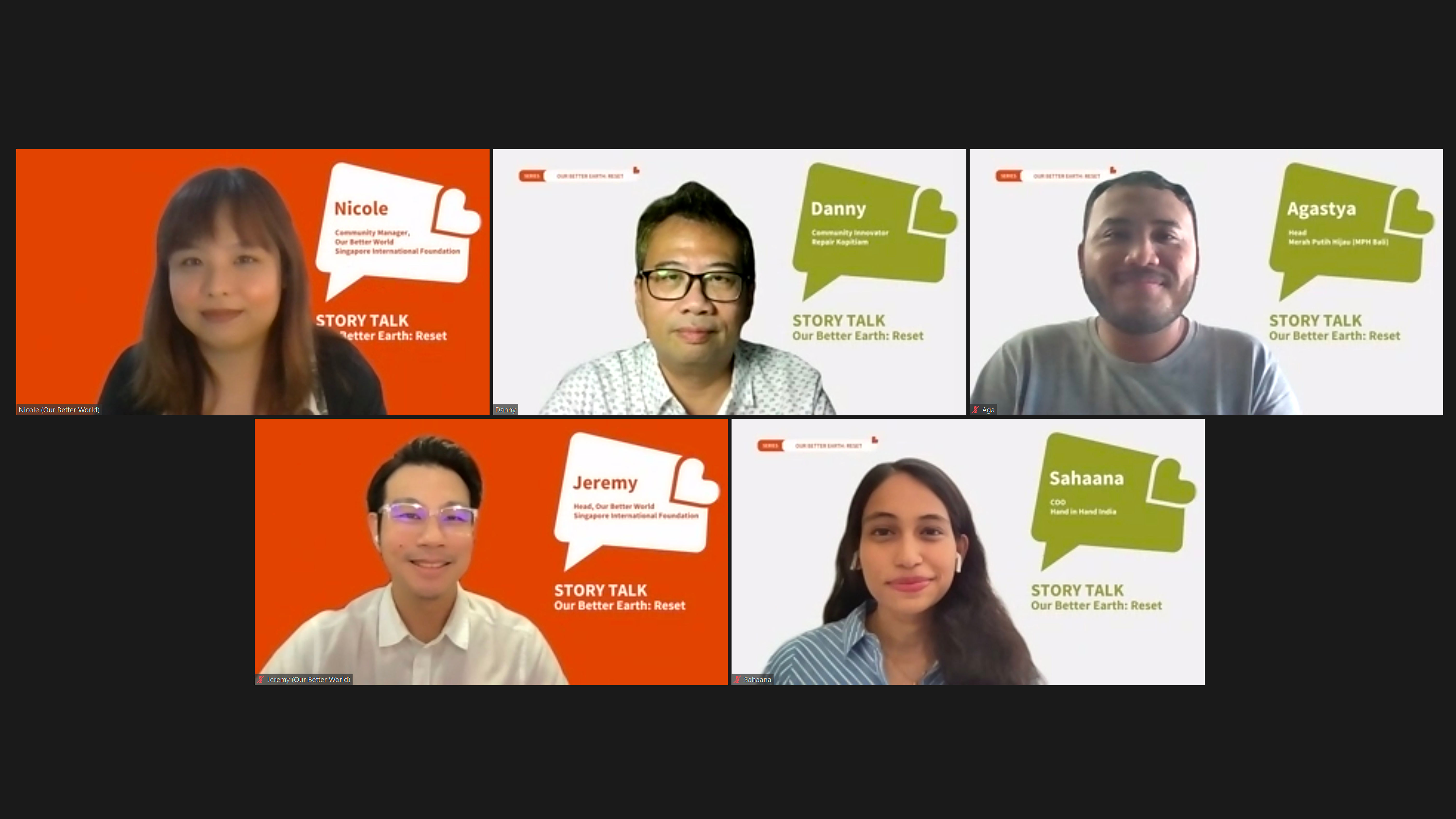STORY TALK: Our Better Earth: Reset
On changing mindsets and habits
We understand that change will not happen overnight. We took time to get to this stage, it will take longer to reset all our habits. How have these organisations done it? They made sure that they understood the communities they were working with, built trust, relationships and mutual understanding. Meeting each community where they were, from ensuring that the needs and priorities of the people were met, to educating them so they understood why waste needed to be responsibly managed. Once that is achieved, understanding translates into practice and eventually into habit.

On working with building infrastructure for rural villages
This requires work with village leaders and local governments to ensure that there are official structures in place to ensure accountability from all parties, from regular pick up schedules to ensuring that waste is segregated properly.

On repairing our items instead of replacing them
We prize convenience and comfort over responsible waste management. When something is cheap, you are actually paying for an item that has not been designed for circularity. Waste management is not cheap, but we don’t see this cost as it is paid for through taxes. You might save $5 today, but what are you paying for in your future through taxes for waste management? What will your children be paying for in the future?

On engaging with governments and big companies to scale up the change
Governments do play an important role in this ecosystem. They provide access to spaces for waste management facilities and the resources to scale to a larger number of communities. Governments can help by ensuring that waste collection workers are looked after with social security schemes and benefits.
On the other hand, big corporations need to be responsible for consumption and disposal of waste and can do this by supporting NGOs to innovate.
So NGOs help to bridge the gap between people, governments and corporations. Everyone plays an important role in creating a circular economy, regardless of belief systems.
Paraphrasing what Danny said: Just putting the learnings from one self-help book to action, will already be leaps and bounds more than reading all the self-help books in the world. We should be more mindful of the environmental impact of every item we consume, of every action we take. We need to ask ourselves the question of whether we can make that extra step of using a reusable cup instead of a disposable one, or whether we need that latest mobile phone. Are we prioritising our present comfort and convenience over the kind of world that we are leaving for our children?
Explore the Our Better Earth series here.





